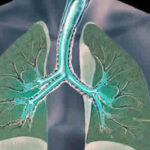Review of herbals to treat asthma
So, researchers from the UK and China reviewed the evidence supporting the use of herbs and plant extracts to manage asthma.
First, the details.
- 26 studies reporting on 20 herbal preparations were included.
And, the results.
- 2 of 6 studies reported an improvement in FEV1 (Forced Expiratory Volume in 1 second)
- FEV1 measures the maximum air you can exhale in 1 second and is the most frequently used test to assess airway obstruction, bronchoconstriction, or bronchodilation.
- Little data were available on frequency of asthma exacerbations.
- Single studies of Boswellia, Mai-Men-Dong-Tang, pycnogenol, Jia-Wei-Si-Jun-Zi-Tang and Tylophora indica showed potential to improve lung function.
- A study of 1.8-Cineol (eucalyptol) showed reduced daily oral steroid dosage.
The bottom line?
The authors concluded, “Improvements in symptoms were not strongly supported by objective changes.” “No recommendations for herbal treatment of asthma can be made from the current evidence.”
The main problems are that most studies include few patients, with no attempt to determine the long-term value of treatment. In addition, these studies tend to be poorly designed.
The authors recommend that studies of herbals in asthma should “conform to CONSORT guidance, report standardized spirometry, and use validated symptom and severity score.”
CONSORT is an acronym for Consolidated Standards of Reporting Trials. It offers a standard way for authors to prepare reports of study findings. The objective is to facilitate complete and transparent reporting as an aid to critical appraisal and interpretation of results.
7/19/10 13:40 JR
